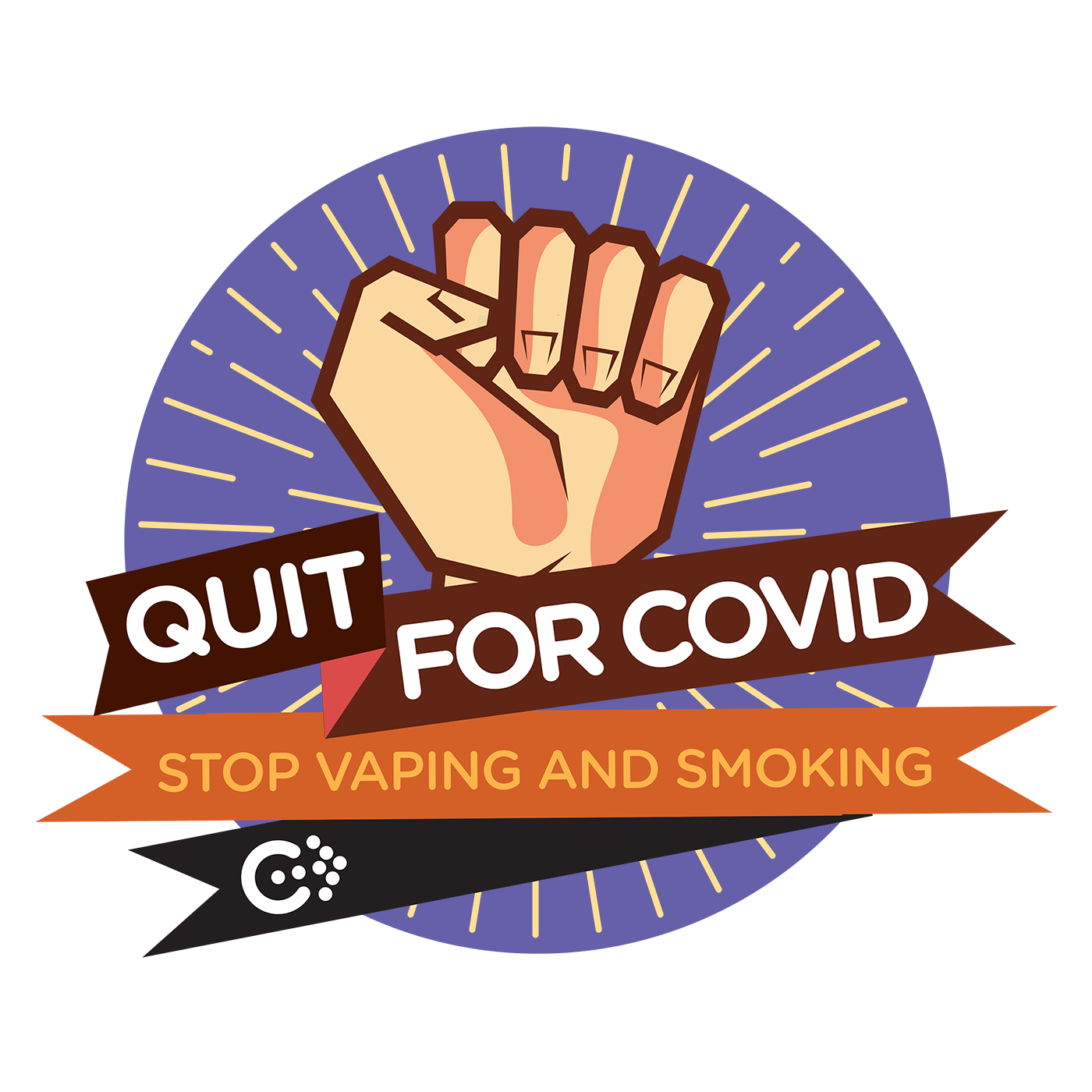
COVID-19 and Vaping
Think you are young and therefore not vulnerable to COVID-19? Think again!
If you vape or smoke, your risks may increase for COVID-19 complications.
Vaping of both nicotine and marijuana is widespread among local youth...
Vaping is widespread among local youth, with nearly 30% of seniors using a vape product containing nicotine in the last month. Vaping of marijuana is also prevalent, with 38% of seniors having ever tried marijuana with a vaping device and 24% have vaped marijuana in the past month (2019 Pride Survey).
Vaping is known to cause serious lung inflammation...
Vaping is known to cause serious lung inflammation, including sometimes irreversible damage to the alveoli, the tiniest air sacs in the lungs. EVALI (E-Cigarette and Vaping Associated Lung Injury) is a very serious lung condition that has been tied to vaping, particularly vaping of high potency marijuana oils (concentrated THC) containing vitamin E acetate; there have been over 2800 hospitalizations and nearly 70 deaths related to EVALI. Over 75% of the hospitalizations were patients age 35 or younger.
Lungs injured from vaping or smoking may increase a person's vulnerability to COVID-19...
Lungs injured from vaping or smoking may increase a person’s vulnerability to COVID-
19 and possibly greater severity of the illness, according to American Lung Association and its Chief Medical Officer Albert
Rizzo, M.D.:
- “We know that inhaling irritating substances like tobacco smoke and vape
emissions …….disrupts the immune system causing a chronic degree of
inflammation in our airways. The presence of this inflammation in the face of an
additional insult like [COVID-19] makes it harder for our lungs to combat the
invading virus and setting up the risk for many severe complications of the
infection.” - “Smoking and vaping cause harm to the lungs, leaving lung tissue inflamed,
fragile and susceptible to infection. In addition, tobacco use has been proven to
harm immune system and airway lining cells that contain cilia on their surface.
which are our essential defenders against viruses like COVID-19. Without them
working properly, the lungs are more vulnerable.” - “Recent evidence shows that smokers are more susceptible to severe symptoms if
they do contract COVID-19. In a recent study published by the New England
Journal of Medicine, people who smoke were 2.4 times more likely to have
severe symptoms from COVID-19 compared to those who did not smoke.” - Dr Rizzo advises that “an important step to immediately improve your health and
possibly avoid the most serious symptoms of this scary disease is to consider
quitting smoking and vaping”
Because it attacks the lungs, the corona virus that causes COVID-19 could be an especially serious threat to those who smoke tobacco or who vape...
“Because it attacks the lungs, the corona virus that causes COVID-19 could be an
especially serious threat to those who smoke tobacco or marijuana or who vape”,
according to the NIDA (National Institute on Drug Abuse).
Read More
- The CDC places smokers in a higher risk group for severe illness along with the
elderly, individuals with serious heart or lung conditions, those
immunocompromised from cancer treatment, and those with severe obesity,
diabetes or kidney or liver disease. Read More - Although the risk for COVID-19 hospitalization increases with age, the latest
data show about 1 in 5 admissions were age 20-44, indicating that the virus is
impacting more young people than previously thought; the possible connection
to vaping and smoking of cigarettes and marijuana will be furthered investigated.
Read More - “Quitting during this pandemic could not only save your life, but by preventing the need for your treatment in a hospital, you might also save someone else’s life,” said Dr. Jonathan Winickoff.
Given current stay-at-home mandates, young people may find themselves experiencing symptoms of withdrawal...
Given current stay-at-home mandates, young people may find themselves experiencing
symptoms of withdrawal. The Truth Initiative warns:
“With teenagers and young adults now at home and adjusting to abrupt physical isolation, canceling plans and moving many activities like school online, young people may find themselves vaping even more or experiencing difficult withdrawal symptoms if they are unable to access e-cigarettes. Overcoming nicotine addiction is difficult to begin with, under normal circumstances, and stress and anxiety are often triggers to smoke or vape, especially during uncertain times”
The most common symptoms include:
- Having cravings for cigarettes
- Feeling down or sad
- Having trouble sleeping
- Feeling irritable‚ on edge‚ or grouchy
- Having trouble thinking clearly and concentrating
- Feeling restless and jumpy
- Having a slower heart rate
- Feeling more hungry or gaining weight

